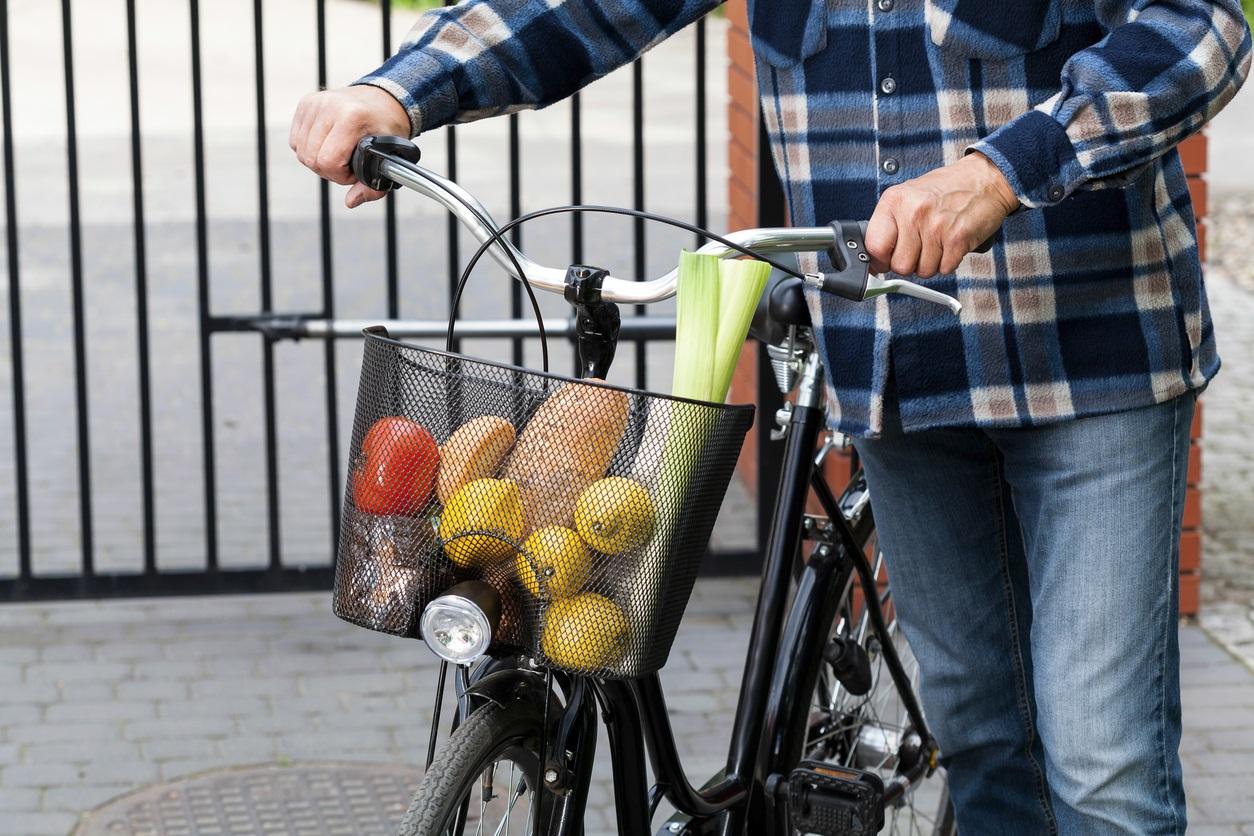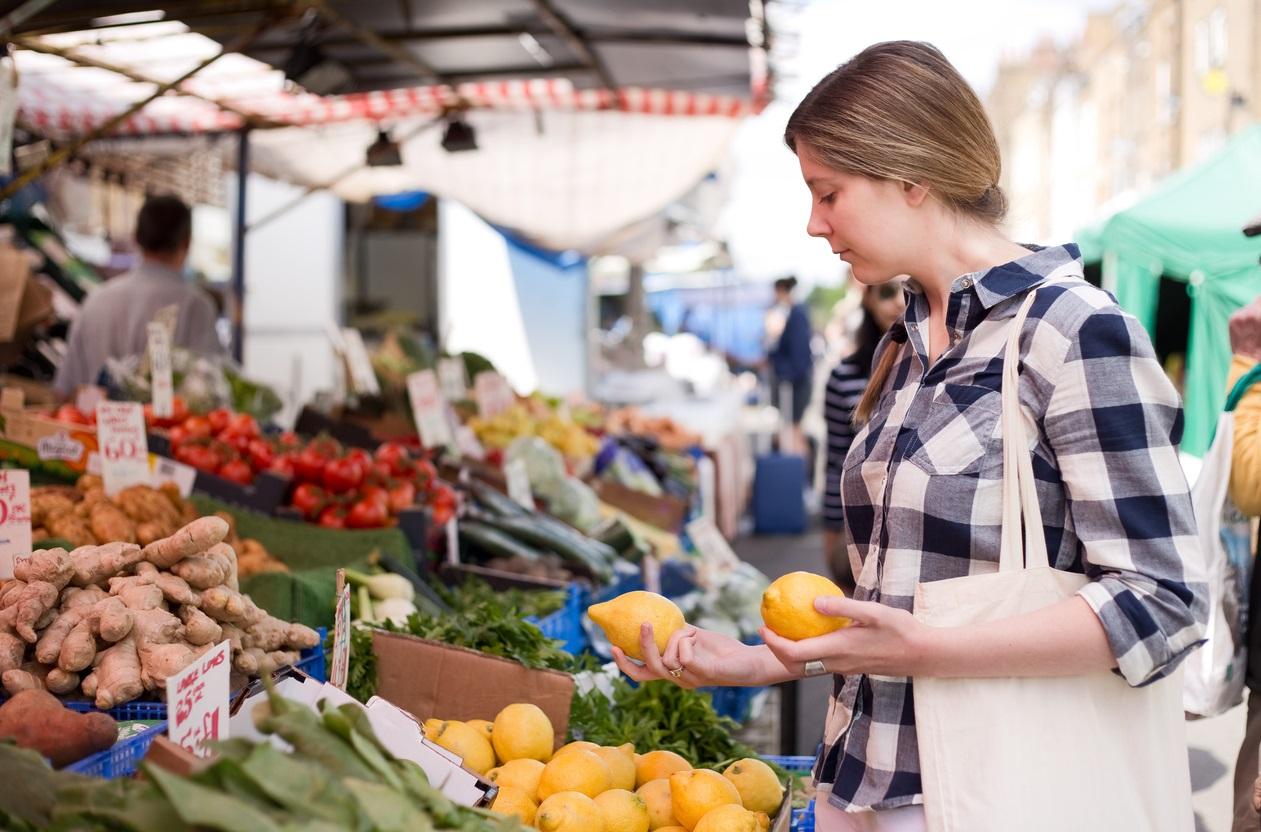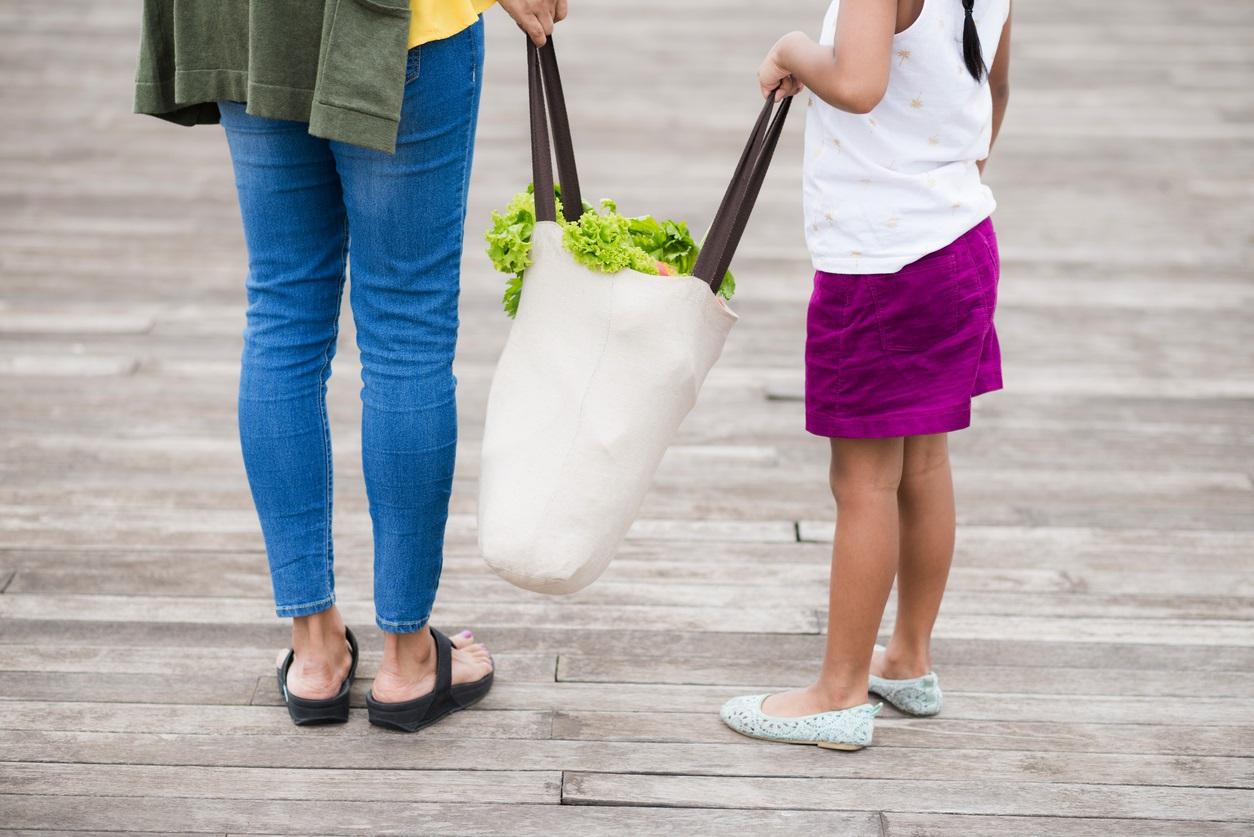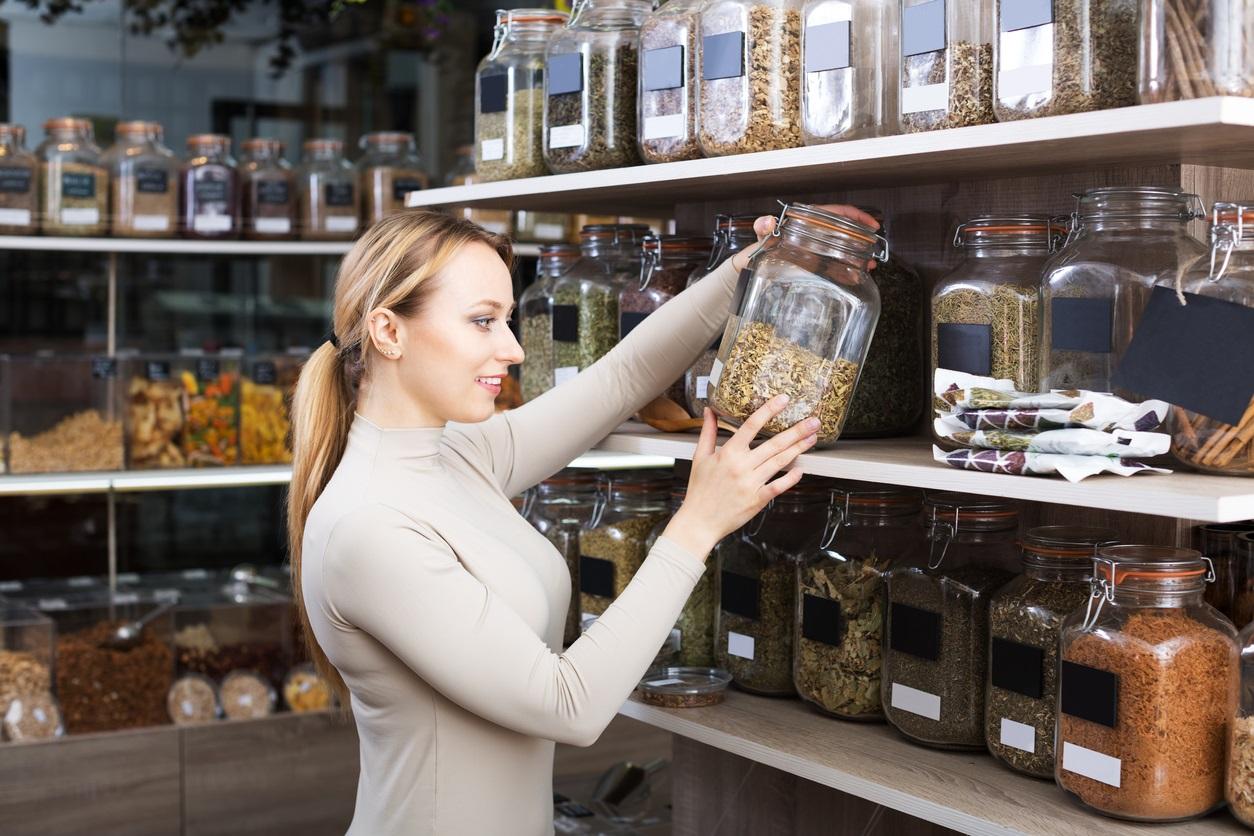5 Simple Ways To Shop Greener At The Grocery Store
Here are five ways to make a difference by going green at the grocery store.
Updated April 30 2019, 12:22 p.m. ET
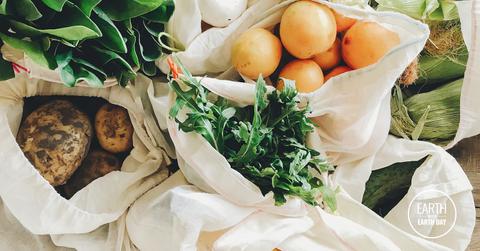
Grocery shopping is a universal errand — every family has to do it. So it makes sense that the way we shop can have a huge collective impact on our planet. Although many of us have shopped the same way for years and go through the same habitual motions each time, it's worth stopping to examine our shopping tendencies, to make small changes that can help the environment.
From where we shop to what products we buy to how we get back home, every action we take — no matter how habitual it may feel — is a choice. What choices can your family make to help the environment while shopping? Here are five ways for you to shop greener at the grocery store.
1. Consider non-motorized transportation
How do you get to the grocery store? If you're like most Americans, you likely drive. This is understandable, if you live more than twenty minutes away from the grocery store or if you are shopping for a very large number of items. But if you live close to your store of choice, or if you're a city-dweller, why not hop on a bike, utilize public transportation, or even walk to buy your groceries?
We all know that cars contribute to the rise of greenhouse gasses, which contribute to climate change. So if you want to make a difference, simply getting to the grocery store in a different way can be a huge help! Just be sure to avoid rush hour, if you're planning to use public transportation. And don't forget, sturdy baskets can be clipped on and off of almost any bicycle, so investing in such a basket gives you an eco-friendly shopping bag as well as ease of transport.
2. Shop local as often as you can
Shopping in our own neighborhood, rather than driving to far-flung locations, can cut down on carbon emissions and help the environment. Small, local grocery stores also tend to carry fresher produce and can sometimes even offer more organic and all-natural products than large, chain stores.
Though shopping local may seem like a pipe dream for those living outside of cities and large towns, it isn't necessarily so. If you live in an area that's far from stores, or if there's only one store in your town, there may still be options. Do local farmers in your area sell any produce straight to consumers? Does your town have a farmer's market during spring and summer? Check your town's website or Facebook page, or call your city or town council, to find out. You may be surprised by what you find.
3. Use reusable grocery bags (or boxes)
Most eco-conscious shoppers know about reusable grocery bags. But did you know that some of these bags aren't made from recycled materials? If you plan to buy a reusable bag to do your shopping, double check to make sure that it's made from recycled materials (these bags will likely have a stamp or logo saying so).
As an alternative to grocery bags consider using biodegradable containers, like a cardbox box, to bring your groceries home in. Those shoppers familiar with ALDI will tell you that this company integrated boxes into their customers' shopping experiences long ago by encouraging customers to grab boxes available in the store. They've recently announced their plans to take their sustainability efforts to the next level — and committed to making all their packaging reusable, recyclable, or compostable by 2025. Even if you don't live around an ALDI store, you can take this same practice into account by reusing any cardboard boxes you may have at home.
It's also worth noting that if you don't have many things to get on your trip, there's no need to feel obligated to use a bag or other container at all. Simply carry small items in your arms, or have kids carry some non-fragile items, to help out. And if you're using a bike to get to and from the grocery store, a removable bike basket can function as both a shopping bag and a means of transport home.
4. Choose products with recycled packaging
It's no secret that plastic is bad for the environment. But besides plastic shopping bags, what you can do, as a consumer, to cut back on grocery-related packaging waste? Plenty. Start by choosing products packaged in recycled material that can also be recycled after use.
Due to the recent boom in the popularity of green living, many large companies have begun responding to the demand for greener packaging. Annie's sells cookies, gummy snacks, crackers, cereal, and pasta in 100 percent recycled packaging. Colgate announced that it would produce 100 percent recyclable packaging for three of its four product categories by 2020. Several brands of ketchup, salad dressings, peanut butters and jellies come packaged in recyclable materials.
Though it may mean tweaking your shopping plans slightly, buying in bulk is another great way to reduce packaging. Some retailers, such as Costco and Sam's Club, specialize in bulk-buying, and make the process simple.
5. Buy all-natural products
The choice of which products to buy is possibly the most important grocery-related decision of all. It's a decision that should be based on more than just packaging. We should also consider how the products themselves are produced and what kind of environmental impact they may have, during or after use.
For example, how were your vegetables farmed? How was your meat produced? Many people buy cosmetic products, such as dish soap, laundry detergent and shampoo, at the grocery store in addition to food. What kinds of ingredients are used in these products? When we wash them down the drain, what impact is that having on the planet?
If the answers to these questions leave you feeling uneasy, then consider buying all-natural or organic products. Many produce sections, even in large chain grocery stores, have organic options for vegetables and fruit. Look for meats from companies that raise cage-free birds, non-crated pigs, free-range cows, and ethically farmed fish.
Choose cosmetics with all-natural ingredients, or make some of your own (making herbal soaps and body washes is surprisingly simple and many recipes can be found online.) Remember that buying from companies that produce natural products encourages more production of such products. The money we spend at the grocery store can send a powerful message to companies, both large and small — which is great news for the planet.
